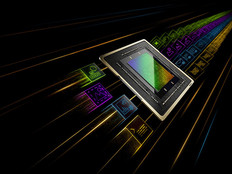Windows 8 Can Solve Mobility Problems for Federal Agencies
Windows 8 provides a common user interface that seamlessly translates across mobile devices and desktops. Some agencies are gearing up to take advantage of the operating system's mobility features.
The biggest moves involve military operations. The Defense Department signed a $617 million licensing agreement with Microsoft in 2012 that will provide the Air Force, Army and other military agencies with Windows 8, related applications and security management tools. Beyond leveraging mobility enhancements, the Defense agencies expect to benefit from platform standardization to boost security, development, support and training efficiencies.
Another agency testing Windows 8 is the Mohegan Tribe. A couple of years ago, the tribe's IT team started pushing back during a hardware refresh cycle by questioning if certain users really needed notebook PCs. Not only were employees frequently requesting tablets, more were using smartphones for remote access while their notebooks gathered dust.
"The need for mobile is there, and we think people will use tablets more because they're lighter and smaller," says CIO Chuck Scharnagle.
The tribe will standardize on Microsoft Surface Pro tablets, which will replace some desktop and notebook PCs. Scharnagle and Shoup have been using Surface Pro tablets running Windows 8.1 for several months, but they haven't decided when they'll expand deployment. They do know they'll reduce hardware costs. "A tablet can cost $1000, but if I give everyone a $1000 laptop and a $1000 desktop, I've doubled my IT experience cost on their desktop. We can't afford that," says Scharnagle.
At the Postal Service's Office of the Inspector General, CIO Gary Barlet is already moving users off notebooks, though his strategy is to virtualize all 1,600 machines so workers can access their desktops from any device. Though he acknowledges that virtual desktop technology has its own headaches, he thinks a migration to Windows 8, for instance, would be dramatically streamlined.






